Citriodiol® is nature’s most effective repellent. It has been protecting families and communities against bites and insect-borne diseases for over 25 years.
But how is this active, derived from the unassuming Eucalyptus citriodora tree, transformed into a scientifically proven repellent?
And just how ‘green’ is this process?
The good news is that essential oil production is by its very nature, a green business.
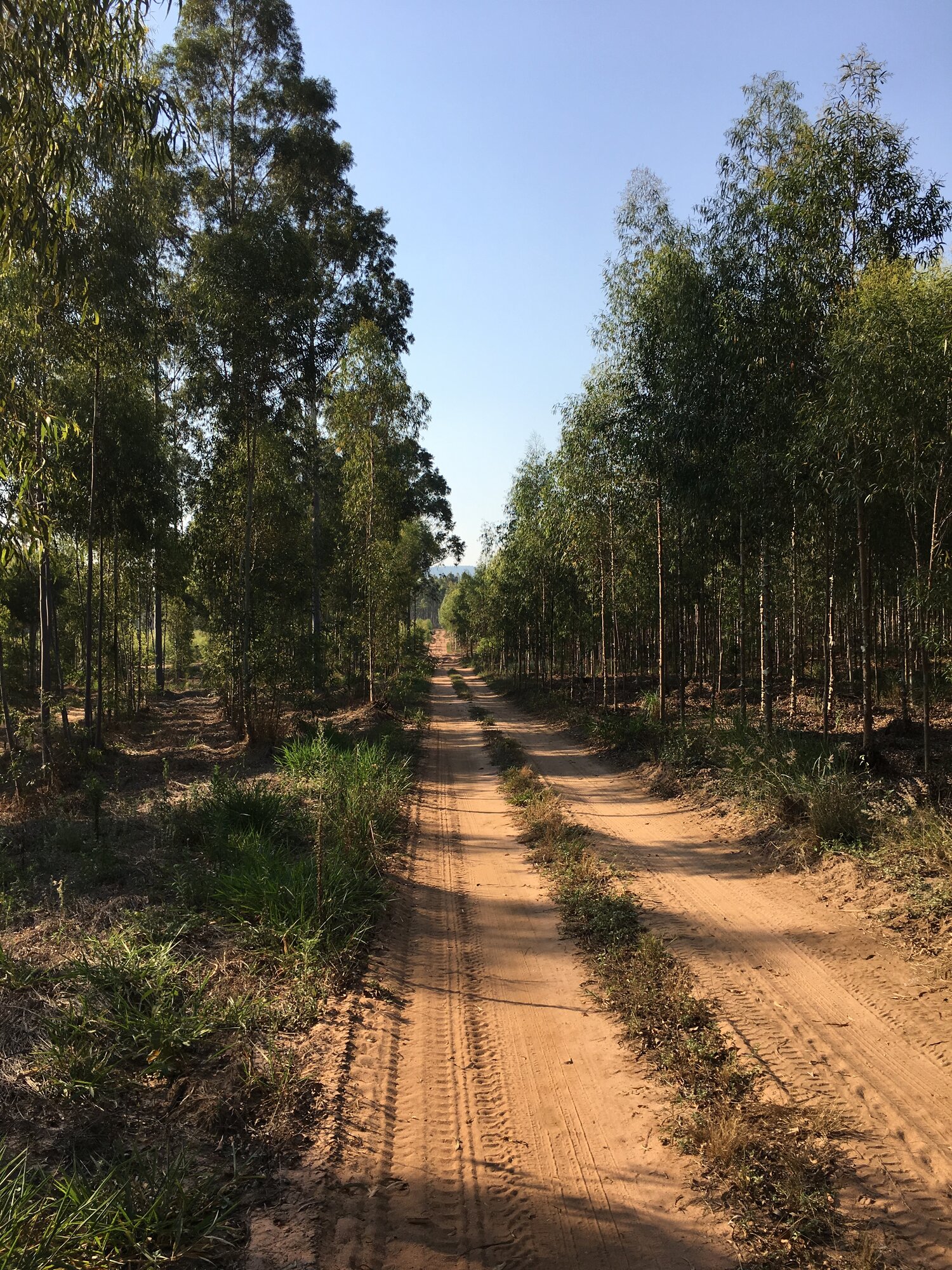
At every step, from the way the tree is grown, and its leaves harvested, to how the oil is distilled and converted into Citriodiol®, the process is natural, sustainable and ethical.
Marrying age-old methods with scientific know-how
Citriodiol® is produced from the oil of the Eucalyptus citriodora tree.
Located on a handful of carefully chosen, sustainable plantations, our trees are grown from seedlings, planted and carefully tended by hand.
On planting, soil is conditioned with lime to ensure optimum health and vitality of both the ground, and the quality of the oil produced.
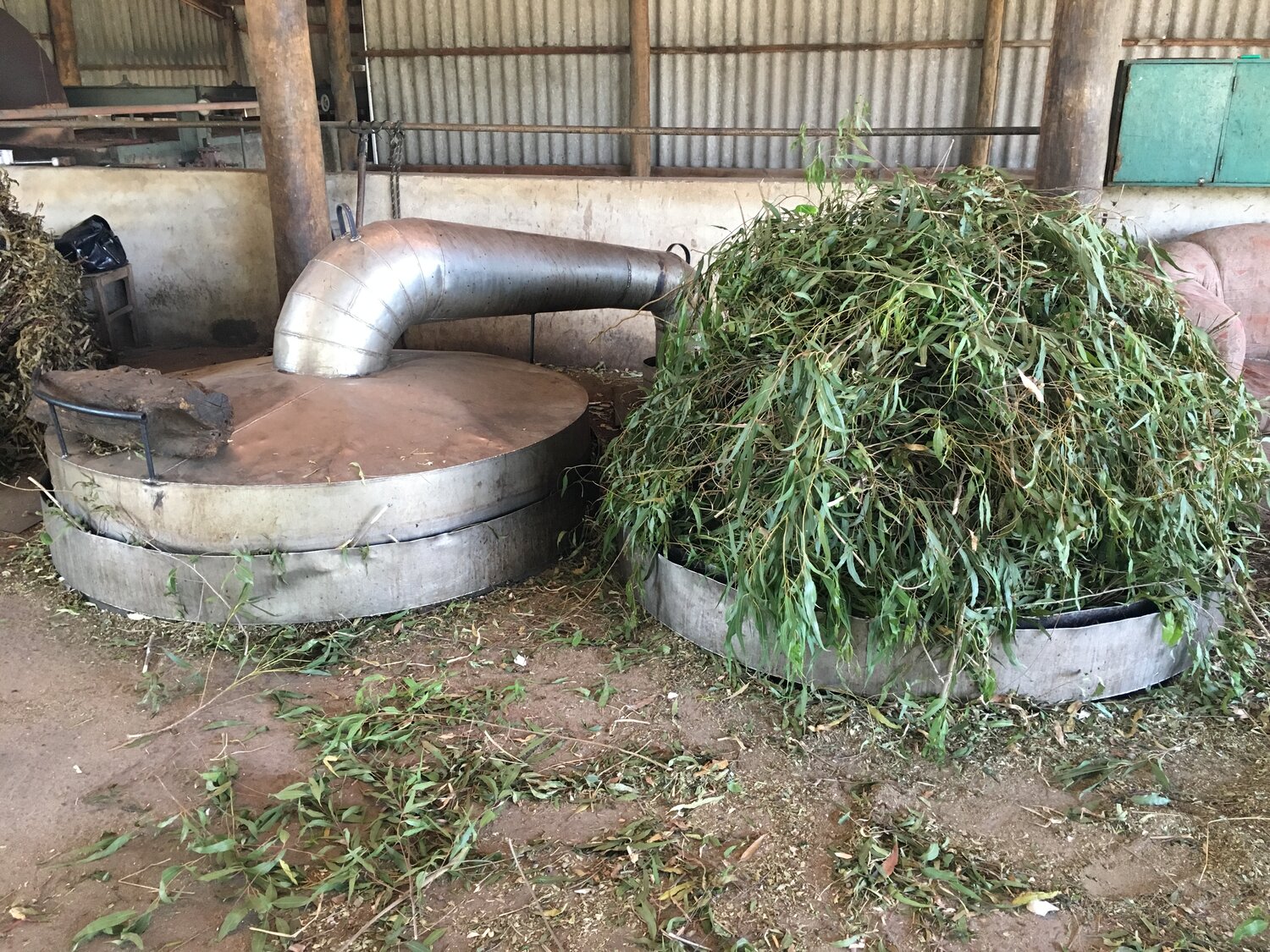
An age-old process of steam distillation is used to extract the oil. Only the leaves and twigs of the trees are used removing the need to harvest the entire tree.
Excess waste leaf from the distillation process is used to improve soil conditionand any weeds are controlled and soil fertilised by running cattle in the plantation.
Neither the trees nor the oil is genetically modified in any way.
Mindful harvesting
Sustainability runs through everything we do at Citrefine.
As demand for Citriodiol® has increased, so too have the number of trees planted and grown to produce our oil.
The leaves are carefully harvested by hand and branches selectively cut, ensuring trees continue to grow for many years to come.
The number of yearly harvests is also closely monitored and adjusted to ensure ongoing tree health.
During each tree’s life span it will be cut down to a stump (coppiced) at least once and then allowed to regrow.
Nothing is wasted. The wood is specially treated for use as poles, sold to local businesses or used to make charcoal.
Eucalyptus citriodora… an exceptional kind of tree…
Not only is itable to absorb large amounts of carbon, the coppiced citriodora trees grow for many years, effectively becoming self-sustaining.
Throughout the tree’s lifetime, more carbon dioxide is absorbed, producing more oxygen to benefit the environment and the planet.
Natural energy generation
Harvested twigs and leaves are placed in a large vessel and compressed. Steam passes through the vessel distilling the oil from the leaves.
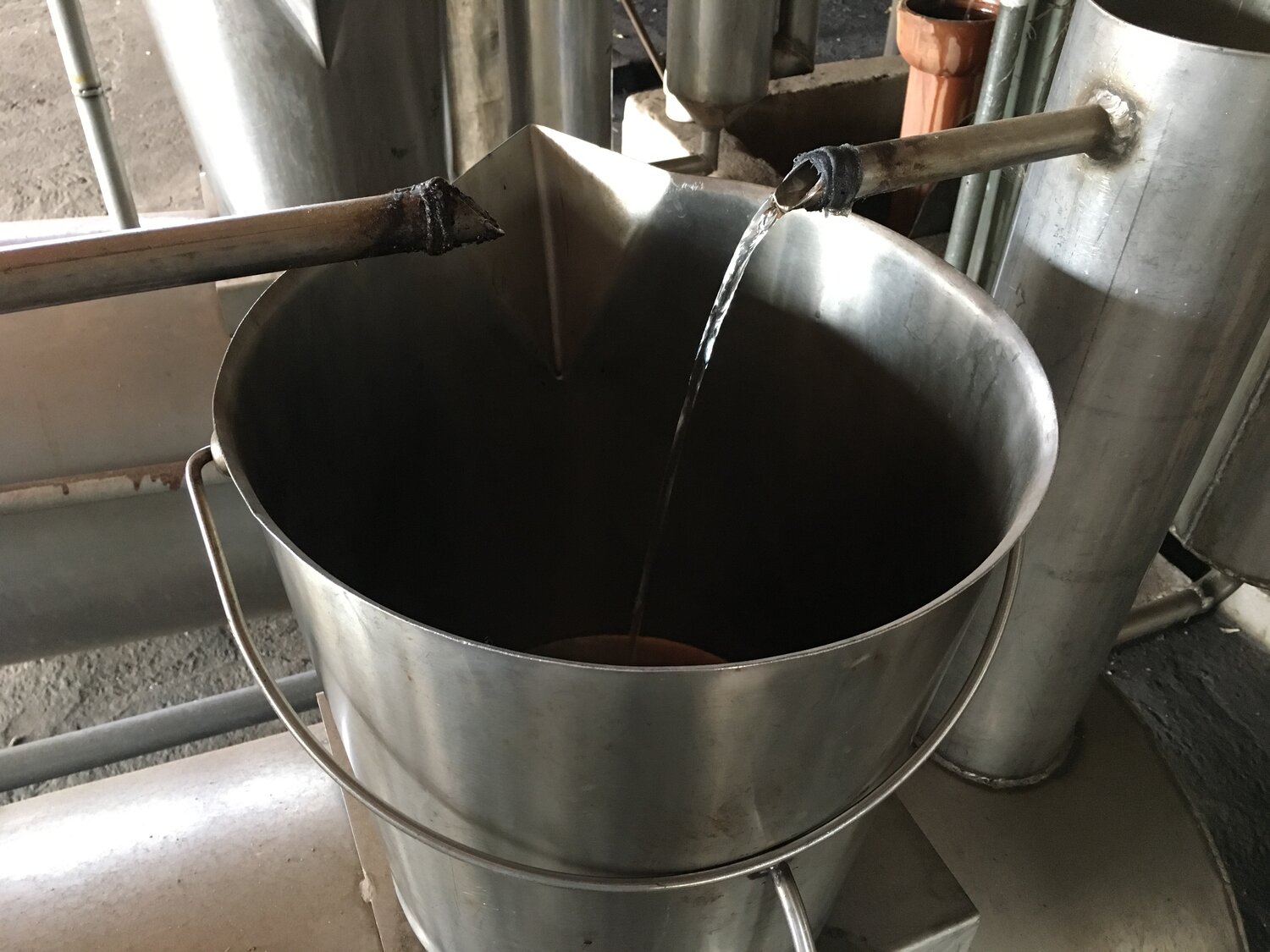
As steam cools, water and oil separate and the oil is captured in drums. The waste leaf (known as bagasse) is the only fuel source used to fire the boiler.
Excess bagasse is then used to maintain the plantation soil while any excess energy generated by the process is used to run other plantation equipment.
Making Citriodiol®
Eucalyptus citriodora oil contains a compound called p-menthane-3,8-diol (PMD) and citronellal.
To ensure efficacy, Citrefine puts the oil through a simple process converting high levels of citronellal in the oil into more PMD.
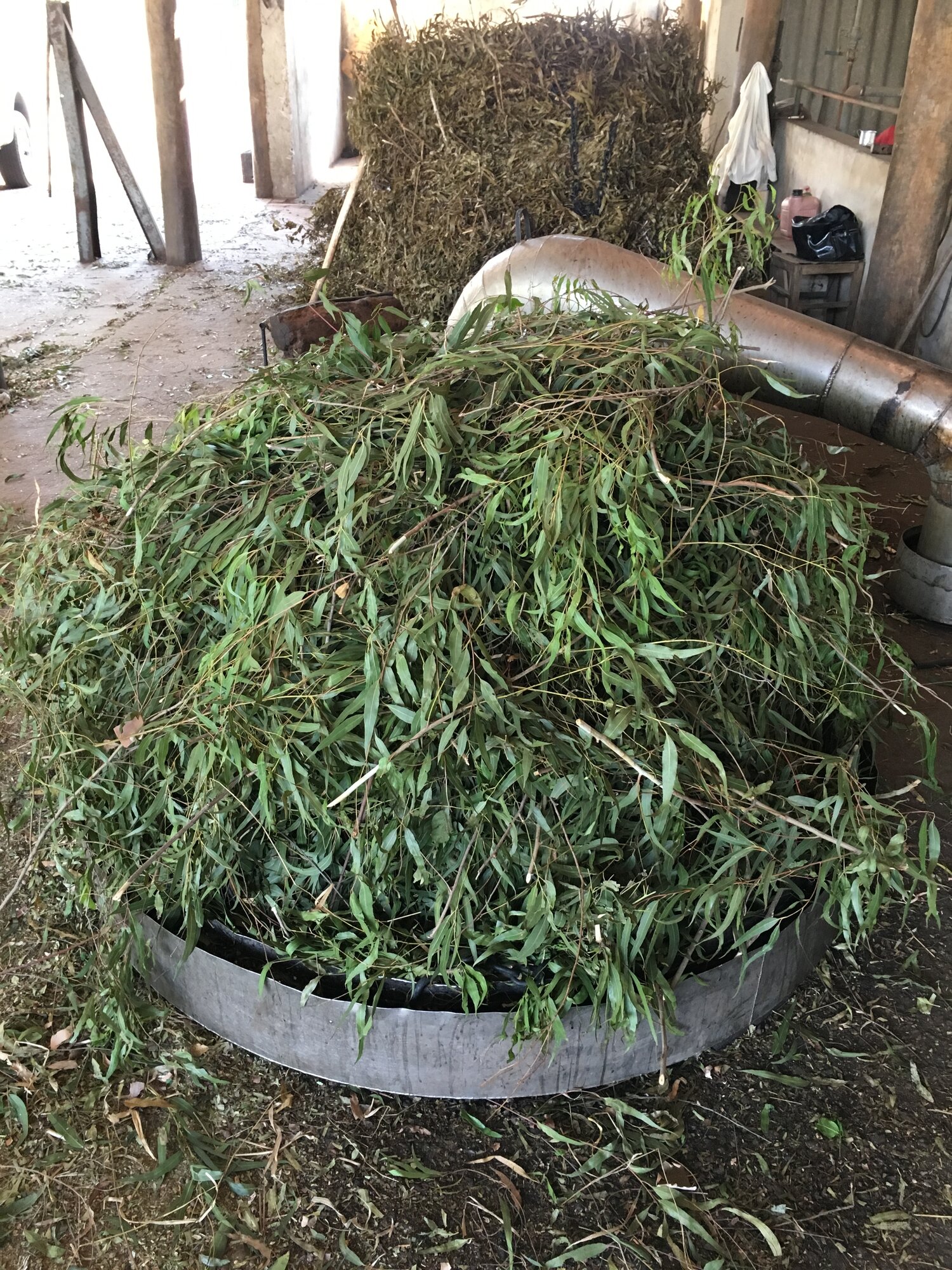
The result is Citriodiol®, a combination of 64% PMD and citronellal which has preserved the naturally occurring minor components in the Eucalyptus citriodora oil.
The active is used across the world in insect repellent formulations readily available off the shelf in pharmacies and supermarkets.
Supporting local communities
Our mission to benefit the planet doesn’t stop at the environment.
Our plantations provide good, stable jobs for both women and men in the community. Workers are nearly all local meaning the plantation helps to support the local economy too.
Citrefine works closely with its suppliers to make sure that no child labour is used in its supply chain.
And last but certainly not least….
Safety…
In addition to the many toxicological studies done on Citriodiol® to ensure product safety for consumers, Citrefine has conducted extensive environmental testing.
These tests have allowed Citriodiol® to pass rigorous environmental risk assessments in the water, air and soil compartments in countries with the highest environmental standards.
They prove Citriodiol® is rapidly biodegradable, so will not pose a risk to soils and waterways, unlike certain synthetic alternatives.
Just as important as being kind to skin and the planet, Citriodiol® poses no risk to precious wildlife such as to birds and honeybees.
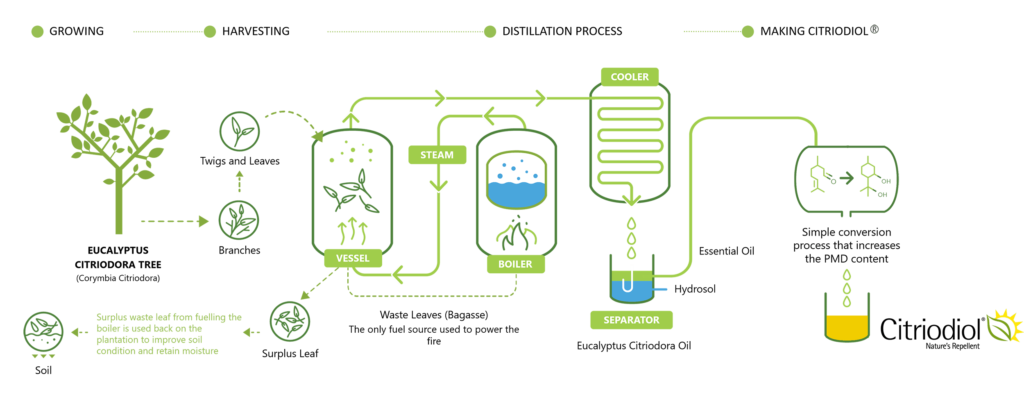
So, there you have it. Our green process from start to finish.
Scroll to top

